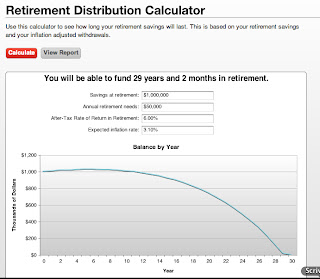It can happen to anybody. Loss of
household income due to layoff, the passing of a loved one or a divorce from
someone who happened to be an income earner, health issues in the family
resulting in loss time from work and/or mounting medical bills. All these
things make conditions favorable for a perfect storm – a civil court judgment.
Avoid the Judgment If At All Possible
The first thing to do is avoid getting
to the point where a party wants to take you to court.
At the first indication of getting
behind, write a letter detailing what led to the current personal financial
crisis. Don’t write a sappy letter to pull the heart strings and try to
get sympathy because basically they don’t care. Just write a to-the-point
summary of what has happened.
In the next paragraph, write what you
plan to do about it. If you can’t pay anything, then you can’t pay
anything. If you can send something as a good faith payment, then send
it. Keep them updated consistently on the situation and try to send
something first opportunity.
Send any and all payments by money
order only and do not obtain the money order from your banking
institution. Anyone with a judgment can subpoena information, but no
sense in making it easy for them to know the location of personal bank accounts
to issue a garnishment should a judgment takes place.
On a side note with that being said, if
asked the place of employment or employer/company name, don’t disclose. Any
information obtained is used to collect a debt. They tell you that up
front. Again, a subpoena can be served to obtain this information
and it may be asked during a court hearing - which in both cases, must be
disclosed.
The sooner intention is shown to pay
the debt even if not financially able at the present moment, the better the
party owed the money will try to work with you. Some companies could call
everyday. If a letter was sent or a conversation took place within 30
days, tell them:
- to check their records on the last
communications
- tell them nothing has changed
since then and if it does they will be notified immediately,
- tell them the date which would be
30 days since the last communications on when you will give them an
update.
Don’t let the harassing calls shake you
up. Plus, being upset will only push the brain to the back making a
person prime to make an unaffordable arrangement out of persistent nagging – a
technique that bill collectors have perfected.
Court Hearing Set for Judgment
Many years ago, a party filed a civil
case. To make a long story short, the money to cover the debt owed was
coming, but wouldn’t be in time to avoid the judgment and I didn’t want to
screw up my credit. Since I had access to an attorney, he suggested that
I could file an answer*. He told me exactly what I would need to say and
then I downloaded a court filing template. Filled in the information and
sent it to the court via US Mail – certified and return receipt. This
caused a series of events that postponed the hearing (this is best that I can
recollect because this was when I was a youngster… but bottom line we never
made it to court and I sent them the money and the case was
dismissed).
The key in this is having access to an
attorney and seeking legal counsel to properly advise. Not playing
attorney.
*An answer can also stimulate the
filing of subpoenas from the other party for information including place of
employment, all sources of income, and all banking information.
Gavel is Struck - Judgment is Granted
When judgment is granted, income and
assets are open for garnishment. Depending on the type of debt and
amount, liens could be placed on property.
This is the time to make a payment
arrangement that is satisfactory. If the payment arrangement is not
satisfactory to the other party, then the process begins for them to seek
collection through garnishment. It’s not hard for companies who have
judgments, especially those who have attorneys on retainer (they filed for
judgment didn’t they?), to find out place of employment and banking
information.
Usually, the funds that are deposited
into accounts not related to earned income, unemployment, child support, etc.
are wide open for the taking. So, if the income tax refund check is
deposited or a Certificate of Deposit or savings account is opened, that money
is subject to garnishment. The garnishment from earned income is
requested directly with the employer and the employer takes the money out of
the check and then sends it to the company.
Sometimes a series of garnishments can
collect more money than was owed. Other than seeking legal counsel and
chasing after everybody to get the money back that shouldn’t have been taken,
this could be exhausting and sadly…..possibly fruitless.
In Summary:
- Don’t hide. Be upfront about
the situation. Initiate the conversation and stay in control of the
conversation – preferably in writing. Keep copies.
- Try the very best to make a
realistic payment arrangement for you and them.
- Only communicate information on a
need to know basis. Just because somebody merely asks a question,
doesn’t mean you have to answer – especially without a court order for the
information.
- Seek Legal Counsel. All
possible scenarios and all the ins and outs about judgments, court
filings, and garnishments were not included in this blog post. This
was merely an overview.
If
sick, there is the doctor.
If
the teeth need attention, then there is the dentist.
If
surgery is needed, it’s performed by a surgeon.
SEEK
LEGAL COUNSEL FOR ANY AND ALL LEGAL SITUATIONS.
N








